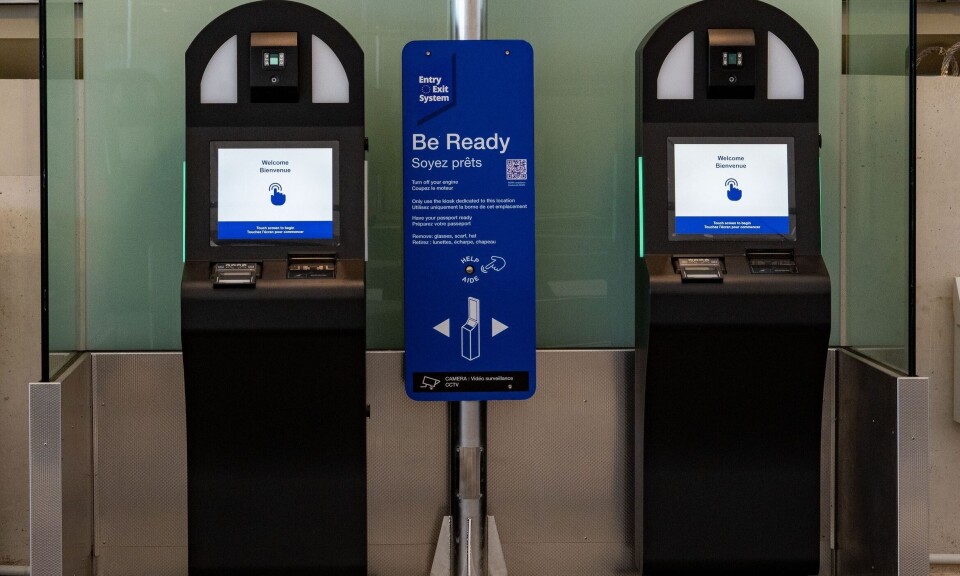-
Off-peak electricity hours in France shift slowly to afternoons
Change to affect nearly 11 million households
-
Two arrested in relation to Paris Louvre jewels raid
One of suspects was detained at Roissy-Charles-de-Gaulle airport as he attempted to board a flight to Algeria
-
Plane near-collision at Nice: aircraft were just ‘three metres away’ from disaster
Pilot confusion over landing runway likely to be cause says preliminary report
New no-deal French law covers health and residency
France has fast-tracked a new law setting out rules for Britons living in France in the case of a no-deal.

This is to avoid problems which could otherwise arise as Britons’ legal residency status would end on March 29 as their EU citizenship is lost.
It should be noted that while France, the UK and the EU Commission consider that Brexit means Britons lose this citizenship, some lawyers argue it should survive. No court ruling has been given on this issue.
If Britain leaves with a deal, there will be a transition period and residents would have until July 2021 to apply for a residency card in France, probably of a new kind.
The aim is to allow them to “live their lives as before” but there would be a loss of local and/or EU voting rights and no onward free movement rights.
The new law largely aims to salvage similar arrangements in the case of no-deal – but it cannot cover matters solely within the UK’s control, such as exportability of UK disability benefits or uprating of UK state pensions.
If enforced, it must be ratified by the French parliament before mid-August to continue.
The law says the measures covering residency, RSA income support and healthcare for Britons may be cancelled if French people in the UK do not receive similar treatment.
The British government says it is offering a simple process for EU citizens in the UK to register for “settled status”, roughly corresponding to the rights in the Brexit deal.
It says this can be done in 20 minutes on a mobile phone app and is free. There is no requirement to prove means or health insurance and EU citizens have until the end of 2020 to apply, or July 2021 if there is a deal.
They will be able to use the NHS. Even so, complications for some in proving stable residency over long periods have been reported.
Here are the key points of the French no-deal law:
Residency:
A period of between three months and a year will be set by decree, during which Britons living legally and stably in France at the time of a no-deal Brexit will not need a third-country (non-EU) citizen carte de séjour. During this time, rights will be maintained as now.
The British Embassy, which assumes a year will be given, is discussing with the French whether the period should be to “obtain” or “apply for” a card. The decree will specify a date by which applications must be made.
The type of card applied for depends on an individual’s situation and the new decree does not say that the cards would be different from existing cards for non-EU residents, but some requirements for obtaining them are lightened.
Britons would be exempted from the usual requirement to hold a visa to live for more than three months in France. There are also cards for non-EU family members living with Britons qualifying for the other cards.
Temporary cards for Britons living in France for less than five years:
Students: A card for one or more years to the end of the current course. The serious nature of the studies must be proven.
Workers on a CDI (permanent) contract: a worker’s card, valid for four years.
Workers on a CDD (temporary) contract: a worker’s card for one year.
Self-employed: a four-year card for an entrepreneur/professional. Proof needed that applicants can live off their resources, not including family benefits and welfare such as RSA support.
Jobseekers: one-year card, not renewable, for jobseekers and those wanting to start a business. Available if applicants finished studies here in the previous year or are registered jobseekers on unemployment benefit after working in France for at least three months in the previous year.
Others: including old-age pensioners and early-retirees. Those who do not meet criteria above may have a one-year “visitor” card (which does not allow the right to work). They need to show they have health cover. There will be an income requirement, clarified in a decree.
On the healthcare requirement, see below about healthcare of British state pensioners.
Connexion asked the government if early-retirees would qualify for the Puma system on grounds of stable residency, as opposed to needing comprehensive private health insurance. This is likely but has not been confirmed.
Cards other than for jobseekers would be renewable on the same conditions. At renewal time, applicants could get a different card if they qualify, apart from the visitor card. For this, normal non-EU citizen criteria must be met, including income from non-work sources, not including benefits, equal to the Smic, and agreeing not to do any work.
Those living in France for five years or more:
People who can prove legal residency qualify for the carte de résident de longue-durée – UE.
Although not a “permanent” residency card, which do exist for non-EU citizens in France, this provides similar rights. It also carries the right to live and work in other EU countries without a visa (but a carte de séjour is still needed).
It is renewable after 10 years by a simple application with an attestation on honour that you have not left France for more than six years (or the EU as a whole for more than three). Applicants cannot be expelled unless considered a security threat. Renewal does not require proof of income or health insurance.
To qualify for this card, applicants need:
- A carte de séjour – citoyen UE/EEE/Suisse –séjour permanent, or
- Proof of five years’ residence and income level to be set by decree.
In future, after a no-deal Brexit, Britons who accrue five years or more of residence in France via temporary cards would qualify for a longue-durée card if they have a level of income to be clarified by decree, ie. some of the usual criteria for other non-EU citizens may be waived or adjusted including a language test and income equivalent to the Smic.
Britons would not be required to sign an “integration contract” attesting that they abide by republican values, as required for non-EU citizens applying for certain cards.
Price of cards:
The no-deal law says the price would be governed by immigration rules. These state the cards give rise to a “tax” of €150-280, of which the precise amount is fixed by decree. The cost is €55-70 for students and people with French work accident or work illness pensions. The “tax” may be no more than €250 on renewal.
This currently gives a fee of €269, both for the first issue of a card and renewal, including a €19 levy in addition to the tax outlined in the law.
The British Embassy says it is in talks with the French over the price and hopes it may be reduced in view of the fact that “settled status” registration in the UK is now free.
Working rights:
Britons whose work is part of their justification for obtaining a card would not need a work permit to continue to do their jobs.
British qualifications required for the role being undertaken would maintain validity.
An application for validation of a qualification in France before Brexit will be assessed on the criteria that applied before Brexit.
The no-deal law also allows for people obtaining UK qualifications in the five years after Brexit to apply for recognition under the previous rules. There is an exception for barristers, who face specific requirements to practise in France with a UK qualification.
Britons who are working as fonctionnaires (titulaires or stagiaires) may retain this status.
Health and social security:
Britons with healthcare in France paid for by the UK under the S1 system would continue to have French healthcare for themselves and their dependants, under the same terms as a French person, for two years, pending negotiations with the UK over a new bilateral healthcare deal.
The British Embassy says preliminary talks are already taking place on this.
Conditions for taking into account in France periods of state pension insurance or employment completed in the UK – for purposes of pension aggregation and unemployment benefit – are also outlined in the order.
Britons claiming RSA income support can continue to do so for one year.
























